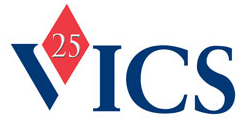The RFID World Asia 2012 conference showed the value of item-level radio frequency identification.
By Joe Andraski, June 18, 2012
VILRI had the good fortune of being invited to present at the RFID World Asia 2012 conference and exhibition, where we participated in a panel and chaired day two of the event. It was well-organized, and the RFID program was well-planned, with a number of subject-matter experts and practitioners sharing very important and relevant information that was mostly about item-level radio frequency identification technology.
The following is a sampling of some of the 15 presentations delivered over the course of the two-day conference, which was held in Singapore on Apr. 25-27, at the Suntec Singapore International Convention & Exhibition Centre. It was clear that EPC-enabled item-level RFID is being used globally in a number of applications beyond retail. Attendees were there, for the most part, to learn about this exciting technology, with the goal of taking what they discovered back to their management team.
The speakers were excellent, with an obvious passion for the value to be realized in RFID, and were more than willing to share and respond to all questions.
Neck Can, J. Crew’s former CIO, offered a retail case study explaining how to design RFID-enabled stores to improve stock issues and store performance.
Mei Mei Chan, the deputy director of nursing at the National Cancer Centre Singapore, discussed a health-care case study about implementing an RFID ambulatory treatment-unit management system within a cancer center.
Frank Dorrian, the president for Asia-Pacific at the RFID International Business Association, outlined why RFID has arrived, and discussed how to capitalize on emerging technologies.
Michio Hamano, GS1 Japan’s COO and executive director, offered insights into the Electronic Product Code Information Service (EPCIS), describing key drivers of RFID implementation in Japan; for example, he said, 80 percent of all container shipments from Japan employ EPC-enabled RFID.
Preveen Kannan, CHEP’s manager of automotive services, outlined the convergence of RFID, the Internet and mobile technologies in containing and pallet pooling.
Suwich Kunaruttanapruk, an RFID solutions specialist, discussed a retail case study about how to improve warehousing processes through warehouse-management systems (WMS), enterprise resource planning (ERP) and RFID.
Pichit Lertudomtana, Eurotyre’s managing director, provided a tire-management case study explaining how RFID improves tire performance and improves miles per gallon by 30 percent.
Yasumasa Watabe, NXP Semiconductors’ APAC business-development senior manager for tags and labels, presented a case study regarding the use of RFID within the electronics market.
Tack Wai Wong, GS1 Hong Kong’s former executive director, spoke about EPC implementations in Asia and Europe, offering examples of RFID applications within 18 countries across a number of industries.
The above represents but a sampling of presentations pointing to the ever-increasing use of EPC-enabled RFID and EPCIS technologies. It was, indeed, exciting to be a participant at the convention, and to experience the energy generated throughout the two days.
One highlight was Zebra Technologies winning the RFID Innovative Award. At the awards dinner, I sat next to Karen Chew, Zebra’s marketing manager, and witnessed the great surprise and excitement that she exhibited—she said I was her lucky charm.
The exhibit hall featured a significant number of technology providers, with the majority comprising RFID tag manufacturers, NRF technology providers and a broad representation of other technology, including systems integrators.
There is more, but I’ll end with this observation: RFID-enabled technology works, and our mission is to provide education and improved methods of communication. It is about not only retail, but also numerous industries, countries and cultures moving forward and realizing the value that item-level, EPC-enabled RFID brings to those who saw the future and moved forward.
If you aren’t there yet, then it’s time to get on the train to success.
 English
English Español
Español Français
Français Italiano
Italiano 中文(简体)
中文(简体) Nederlands
Nederlands Deutsch
Deutsch Cрпски језик
Cрпски језик Română
Română Svenska
Svenska

